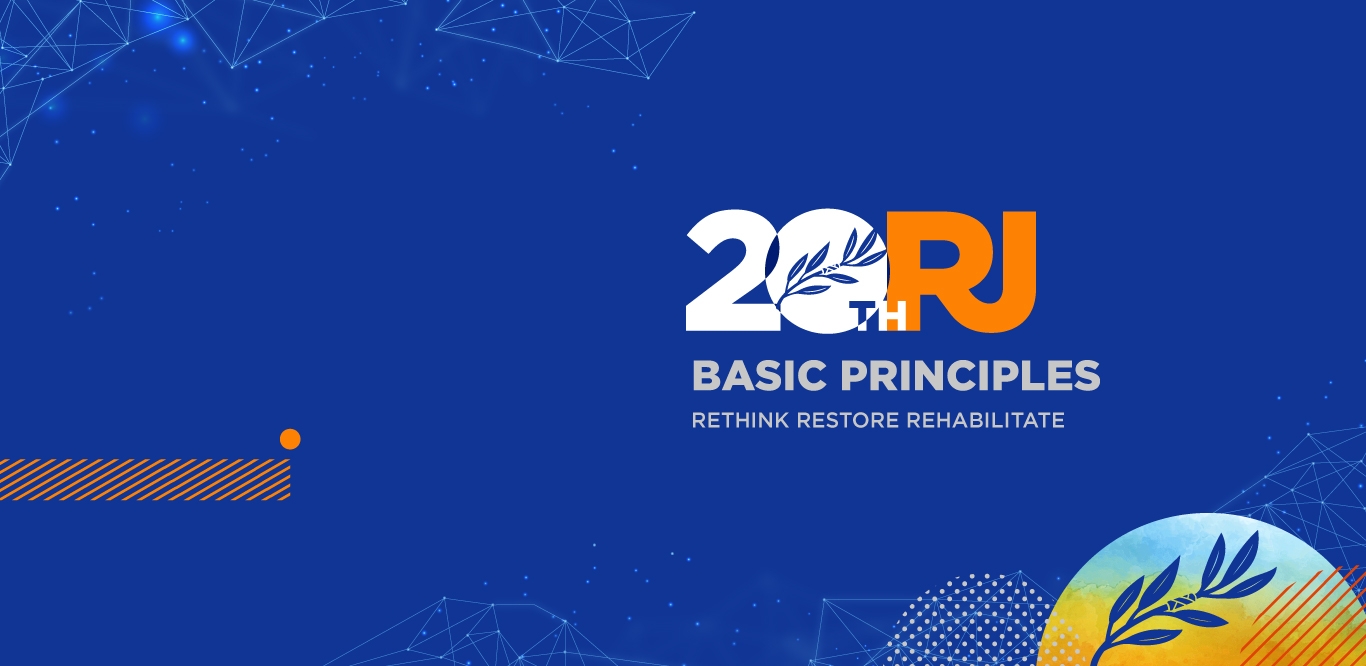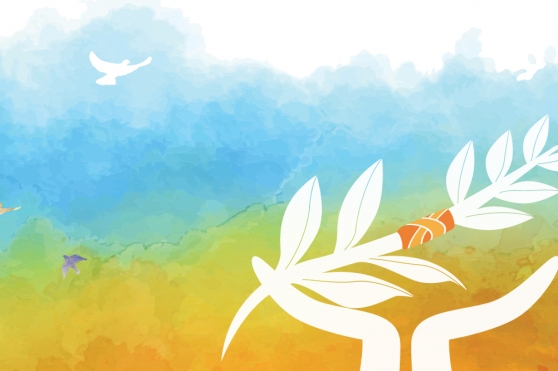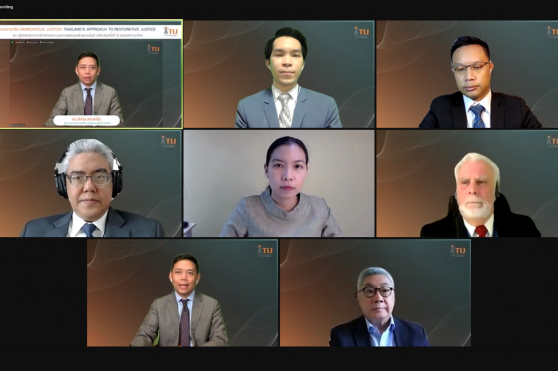Future and Development: 2-Decade Anniversary of the Adoption of United Nations Resolutions on Restorative Justice
Retributive justice is the main form of criminal justice process which is applied globally as a basis for the determination of punishment against criminal offenders. Such approach is so that the offenders can repent on his/her action and is excluded from society and the respective victim for safety reasons. However, more often than not, retributive punishment does not bring peace and safety to society. On the contrary, some offenders had learned the life of crime from their fellow inmates. When imprisoned offenders are released, even though they are ready to be reintegrated into their former lives, serving their time in prison had stigmatized them as “bad people”, planting hatred for society and motivating recidivism to “avenge” society.
Over the last 20 years, international justice organizations have been studying options to replace mainstream retributive justice, and one of such options is “Restorative Justice”. In 2002, United Nations Economic and Social Council (ECOSOC) adopted the Basic Principles on the Use of Restorative Justice Programmes in Criminal Matters which has seen progression up until present.
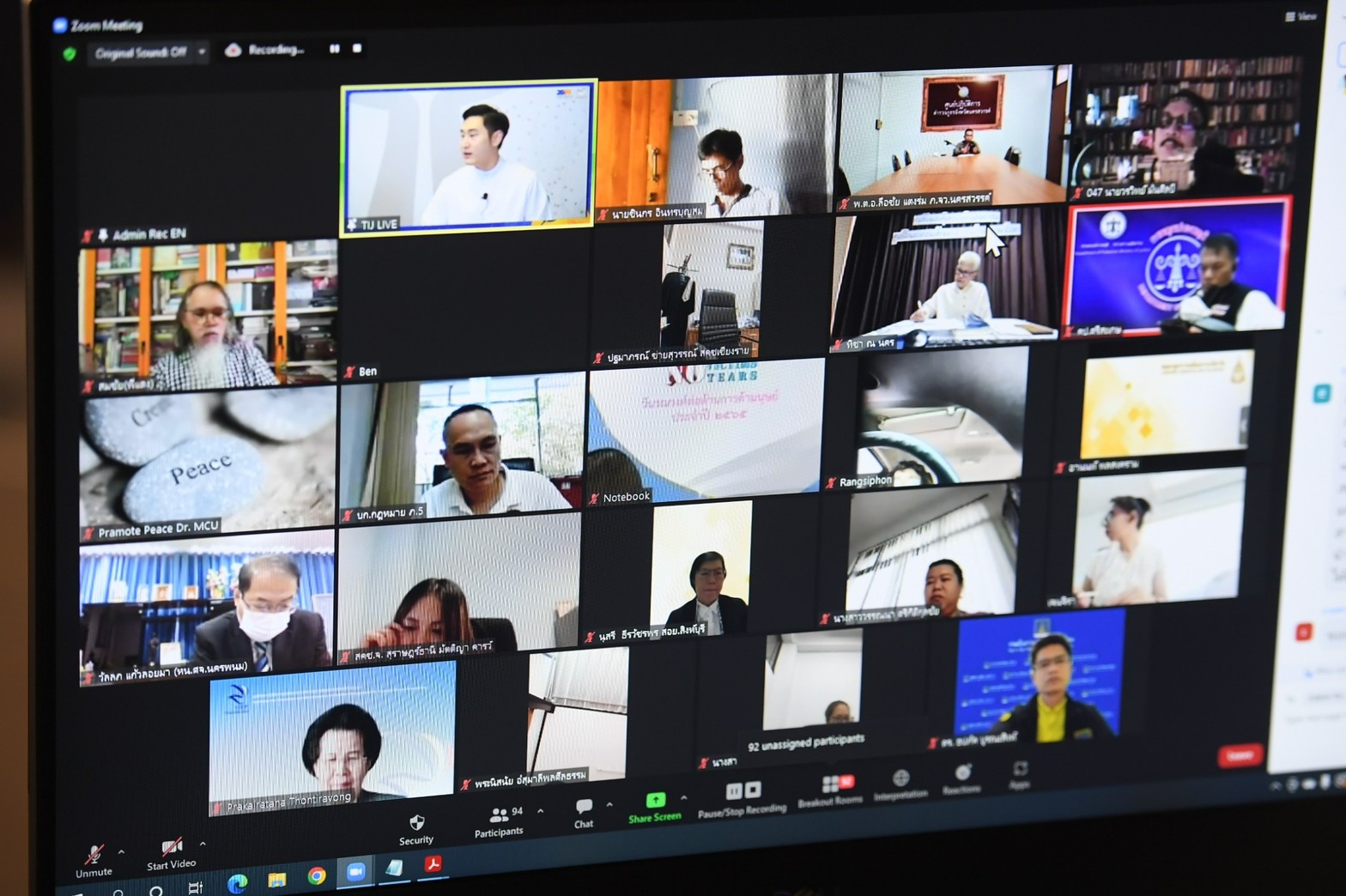

Thailand Institute of Justice (TIJ) as the institution that supports and promotes practical application of international judicial knowledge in the context of Thailand and the ASEAN region, held a technical online seminar to mark the 20th anniversary of the adoption of the United Nations Resolutions on Basic Principles on the Use of Restorative Justice Programmes in Criminal Matters on the 20th of July 2022. At this event, a short documentary called “The Missing Rock” was shown to promote an understanding of the restorative justice concept among the general public.
“Restorative justice is not a new concept for Thai society, but we have to admit that there are numerous conditions and factors to consider in order to apply this concept. We would like to benefit from restorative justice in order to mitigate the challenges that the Thai criminal justice process is facing. Such challenges include access to justice by the public, the reduction of the number of cases going to trial, and the overuse of imprisonment sentences. Restorative justice is a victim-centered approach that aims to restore the relationship of all stakeholders: the offenders; the victims; and the communities.”, said Dr. Phiset Sa-ardyen, the Executive Director of TIJ, in his opening remarks. He also provided that TIJ will continue to support and promote the practical implementation of restorative justice in Thailand, especially in the educational context and the development of efficient monitoring mechanisms.
“The core of restorative justice is to ensure that every party will be remedied according to what they have agreed upon. Therefore, a mechanism is required to monitor how each party is honoring its agreement. It is vital that accurate information is collected and that is what we are trying to achieve. We are developing a monitoring and evaluation system in a pilot initiative with the Faculty of Law, Chiang Mai University and we hope that it will be beneficial to all stakeholders and practitioners.”
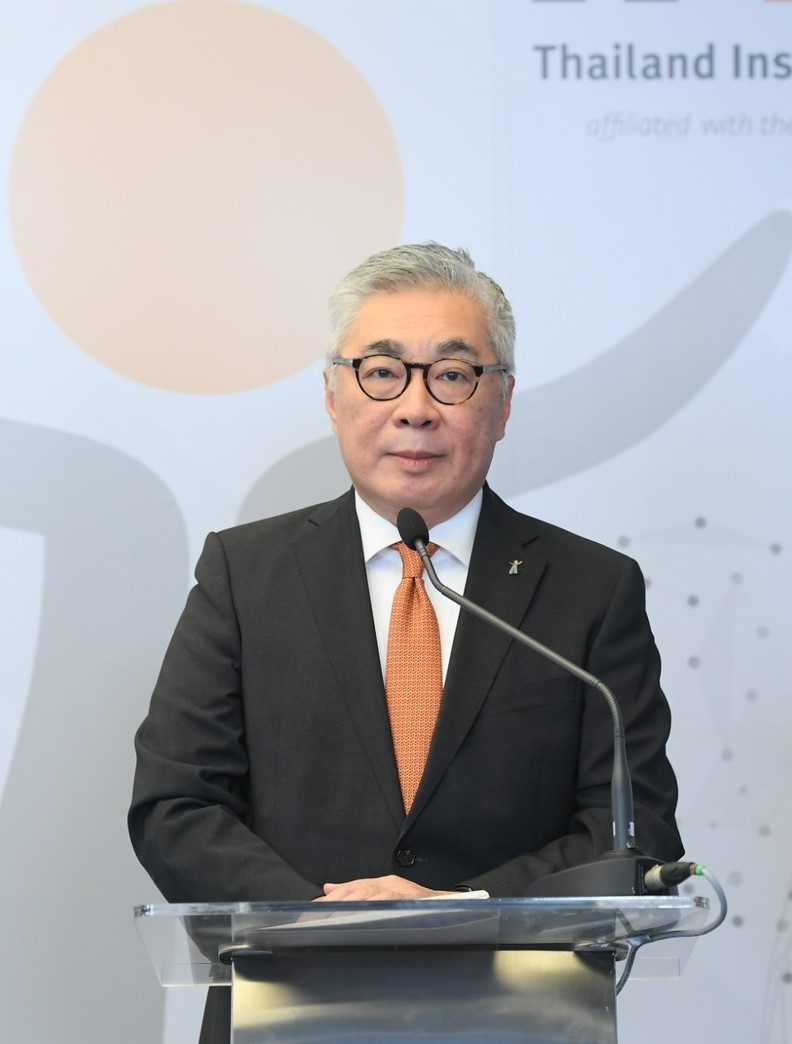
Prof. Dr. Kittipong Kittiyarak, Consultant of TIJ, delivered his keynote speech on the evolution of restorative justice that: In the year 2007, when he was the director of the Institute of Law and Criminal Law in Thailand, he had reviewed many legislations in the process of drafting the Constitution. He encountered a problem with the Thai terms to be applied for the introduction of the new judicial concept of restorative justice. The term “Restoration” means recovery or remediation, but the introduction of such a concept in Thai language was more in alignment with “Rehabilitation” which could not efficiently communicate the essence of this concept. Then, the term “Saman-Chan” (or “Harmony” in English) came up. The word “Saman” means to concord, to connect, and the connotation of which is to mend or to heal, to restore the former status. While “Chan” means to agree. Therefore, a justice process that is “Saman-chan” can better communicate the value of “Restorative Justice” to remedy or heal the conflict in a manner that is satisfactory to all parties involved.
“Restorative justice for Thailand aims to achieve the final result of restoration, which is to harmonize and restore everyone involved. The process should unify the parties, and reflect the goal and methods of restorative justice.”
The application of restorative justice approach in Thailand can be beneficial in a number of aspects, i.e., the reduction of imprisonment sentences, and the application of a victim-centered approach as they are the ones to be restored. Moreover, restorative justice grants opportunities to all stakeholders, the communities, and families to be involved which reinforces the strength of traditional Thai society where communities and families are the first players in conflict resolution.
The Consultant of TIJ also provided his insights on the future pursuit that the society needs to truly understand the essence of restorative justice without confusing the mediation process as part of restorative justice. Sometimes mediation takes place because one party is being submissive to the other or to its higher bargaining power and it does not lead to an agreement between the parties and the repentance of the offenders. Therefore, only restorative justice that aims to reach the process and outcome of offenders’ repentance and victims’ forgiveness can deliver a true remedy. To achieve that, understanding has to be developed through the training of instructors. The process needs to reflect this objective, clear standards have to be determined for the most efficient application. Moreover, there needs to be a clear legal support system and mechanism and society need to be communicated that imprisonment is not the only form of punishment and restorative justice can instill repentance as well.
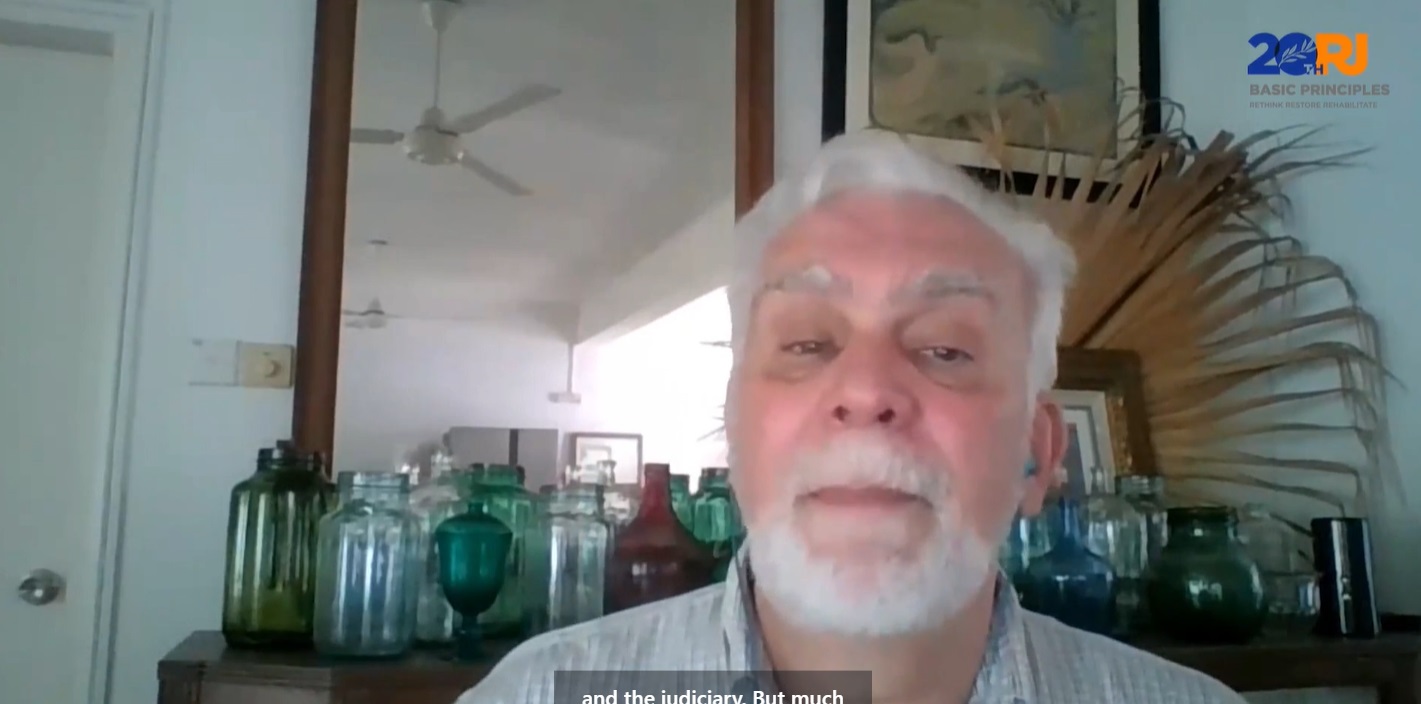
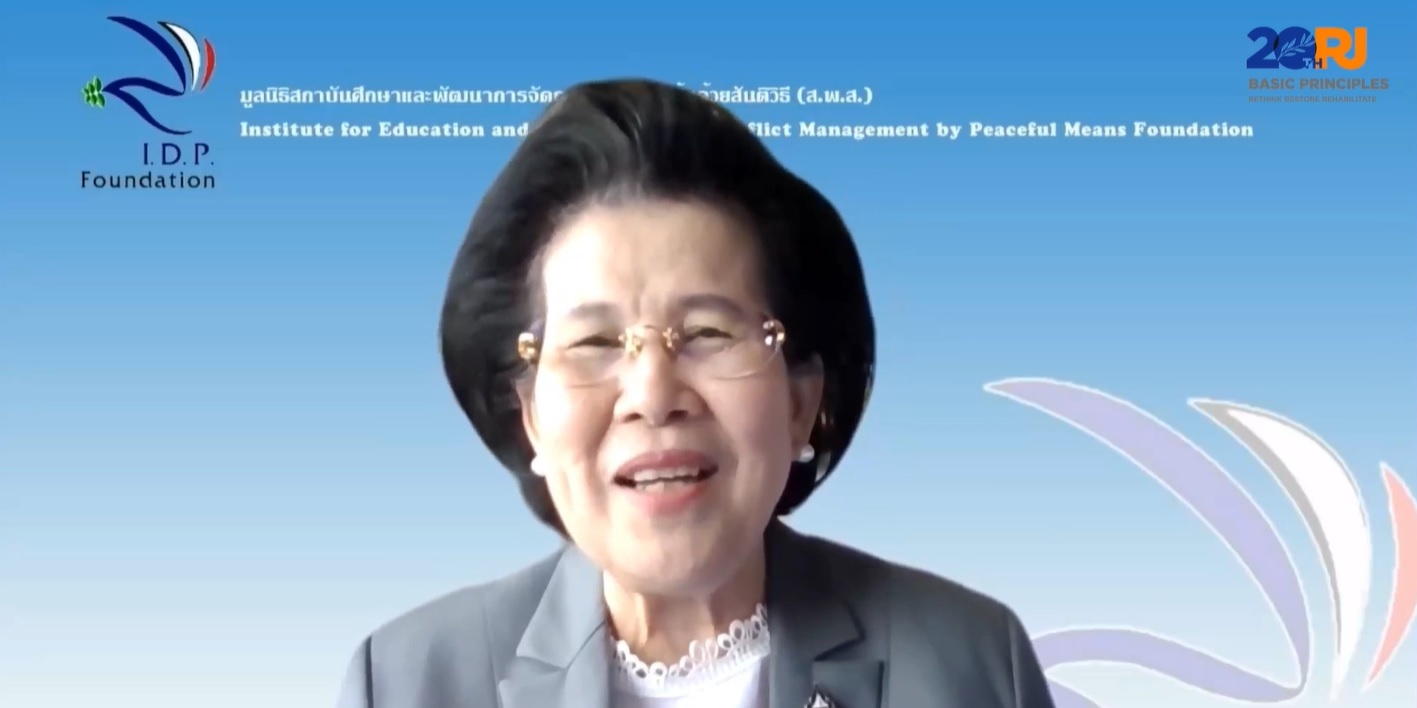
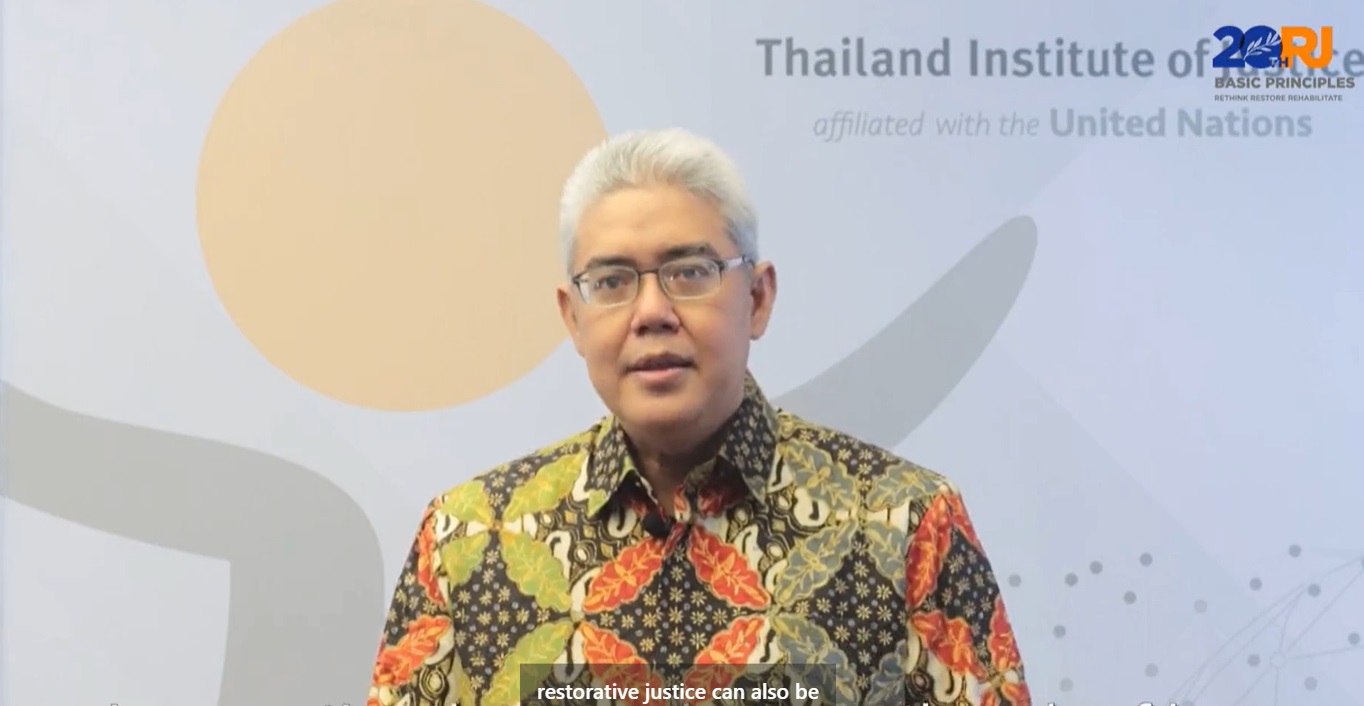
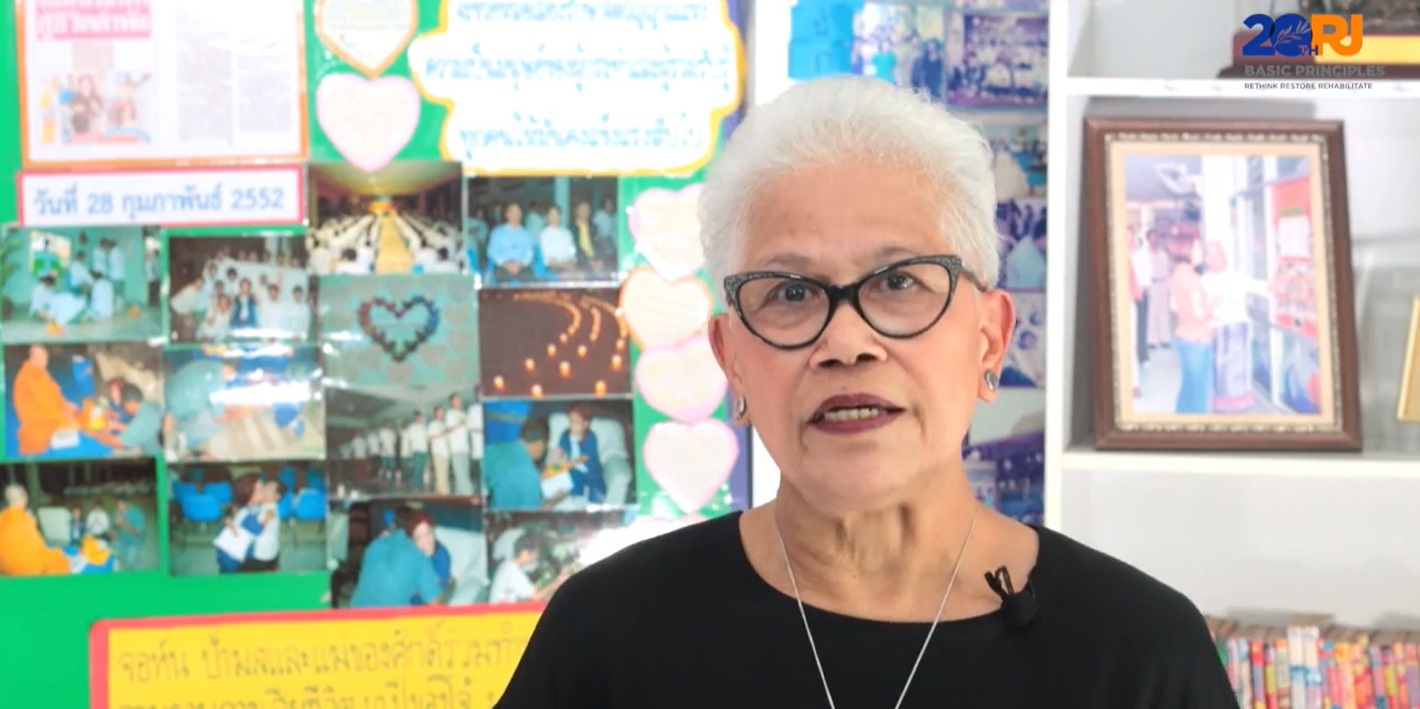
Later, experts on restorative justice, including Yvon Dandurand, Professor Emeritus in the Criminology & Criminal Justice department at the University of the Fraser Valley, Canada; Mrs. Prakairat Tonthirawong, a former member of the National Human Rights Commission; Mr. Vongthep Arthakaivalvatee, Consultant of Thailand Institute of Justice and former Deputy Secretary-General of ASEAN Socio-Cultural Community; and Mrs. Thicha Na Nakorn, Director of Baan Kanchanapisek Vocational Juvenile Training Centre, had delivered a lecture under the topic of Restorative Justice and Criminal Justice. It was agreed among the distinguished speakers that restorative justice has been progressing significantly over the last 20 years. Still, there are many multi-dimensional obstacles and challenges to overcome, particularly social acceptance of the application of restorative justice in many contexts.
The challenges include the promotion of training for personnel and relevant officers for their understanding and implementation of even the fundamental principles of restorative justice to ensure that the goal of restorative justice can be achieved. That is, the offender will have the chance to repent, and the victim to get the remedy he/she deserves with forgiveness and closure through the process that every party agrees to. Restorative justice can be used in every step of the justice process, in both juvenile and adult cases for the peace and order of society as a whole.
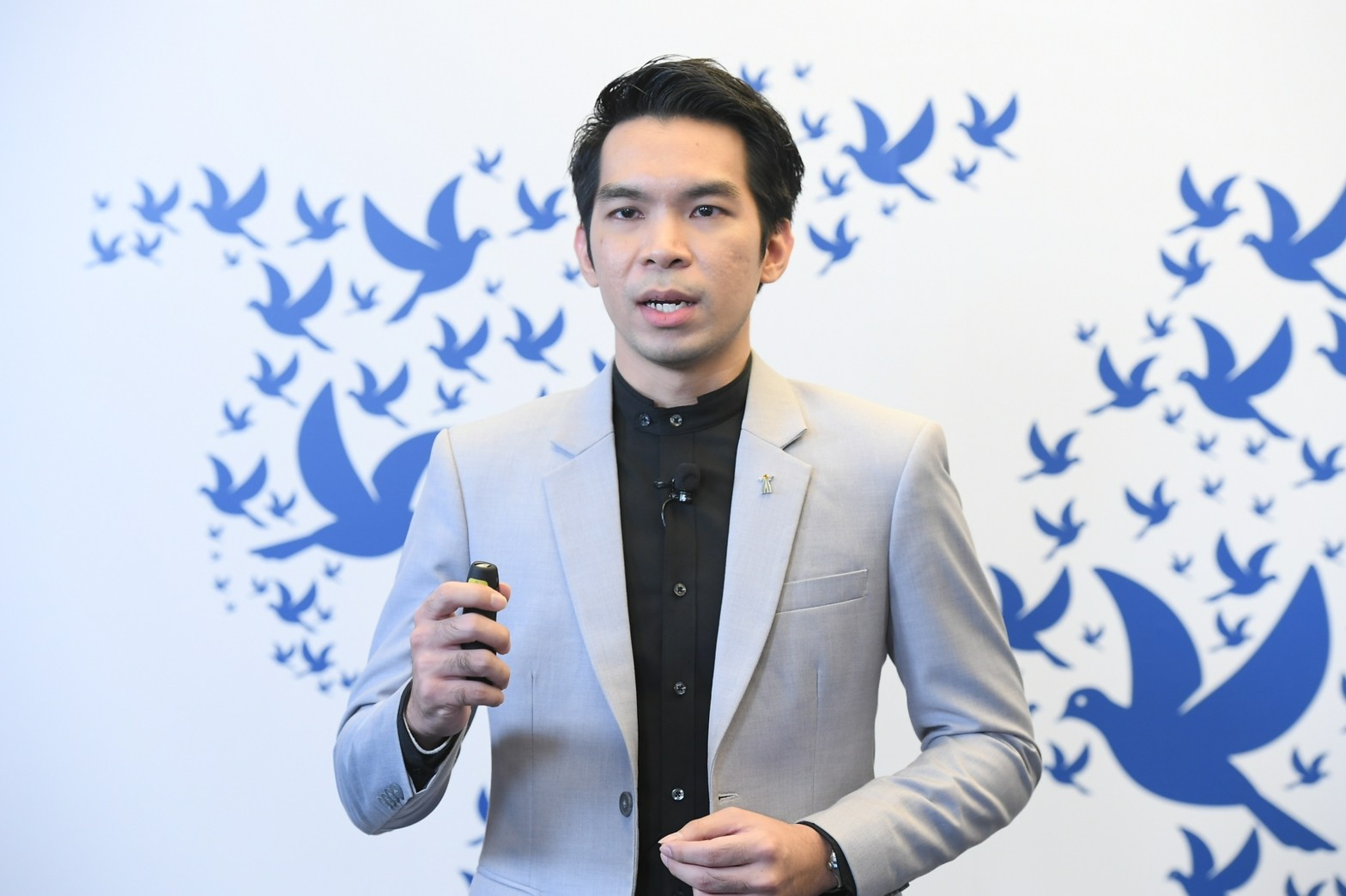
Later, Mr. Ukrit Sornprohm, TIJ Project Manager, had presented the research on “Harmonious Justice, the Path of Restorative Justice Development in Thailand”. It was recommended that restorative justice should be promoted among juvenile offenders before their cases enter the criminal justice system. This can be conducted through the RJ in School activity, the development of RJ monitoring and evaluation system and e-learning, public awareness raising and promoting understanding among target groups through short films and campaigns, and systematic development of relevant legal framework. All of these are the driving factors of concrete and successful restorative justice.
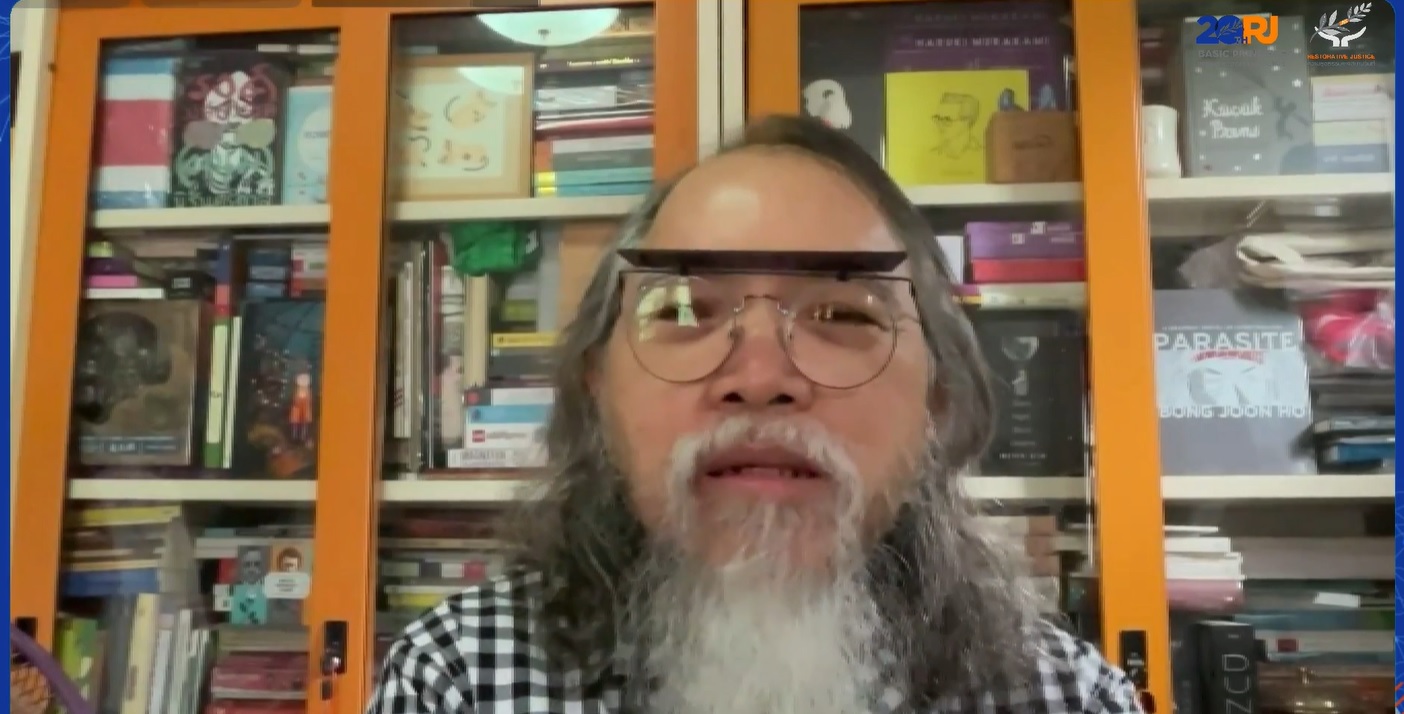
On the same day, a panel discussion was organized on the topic of “Restorative Justice Promotion”. The panelists included Somchai Buddhachantra, the director of a short documentary “The Missing Rock”; Asst. Prof. Dr. Adisorn Juntrasook, Dean of Faculty of Learning Sciences and Education, Thammasat University; Brother Katawut Sittichoksakul, Head of Academic Department, St Gabriel’s Foundation of Thailand; Professor Paisit Panichkul, Assistant Chancellor of Chiang Mai University; Dr. Chernporn Ruangsawasdi, Professor of the Faculty of Law, Chiang Mai University; and Dr. Thapapak Buranasing, Director of the Dispute Resolution Promotion Division from the Conflict Management Promotion Division and on behalf of the Director-General of the Rights and Liberties Protection Department. The panel had discussed their views on the application of restorative justice in Thailand, as well as the expectations and future application guidelines according to the mandate of their organizations.
Somchai Buddhachantra shared his perspective on the application of restorative justice after taking over directing role of “The Missing Rock” documentary. The essence of restorative justice in Thailand is the term “Saman” which is to mend or to heal. But in order to mend, equity and equality are required. Another element is “Chan” (from Saman-chan) which is one of the Four Rddhippada. The meaning of which is to agree, to concord, and with the two elements of Saman and Chan, we can reach restorative justice. The two words were interpreted based on the expectation of creating reconciliation, satisfaction, and mutual concord which is the heart of restorative justice. The director hopes that the broadcasting of this documentary will encourage Thai society to comprehensively understand the dispute before making decisions on how to proceed, starting from the effort to harmonize which is the existing but long-forgotten qualities of Thai society.
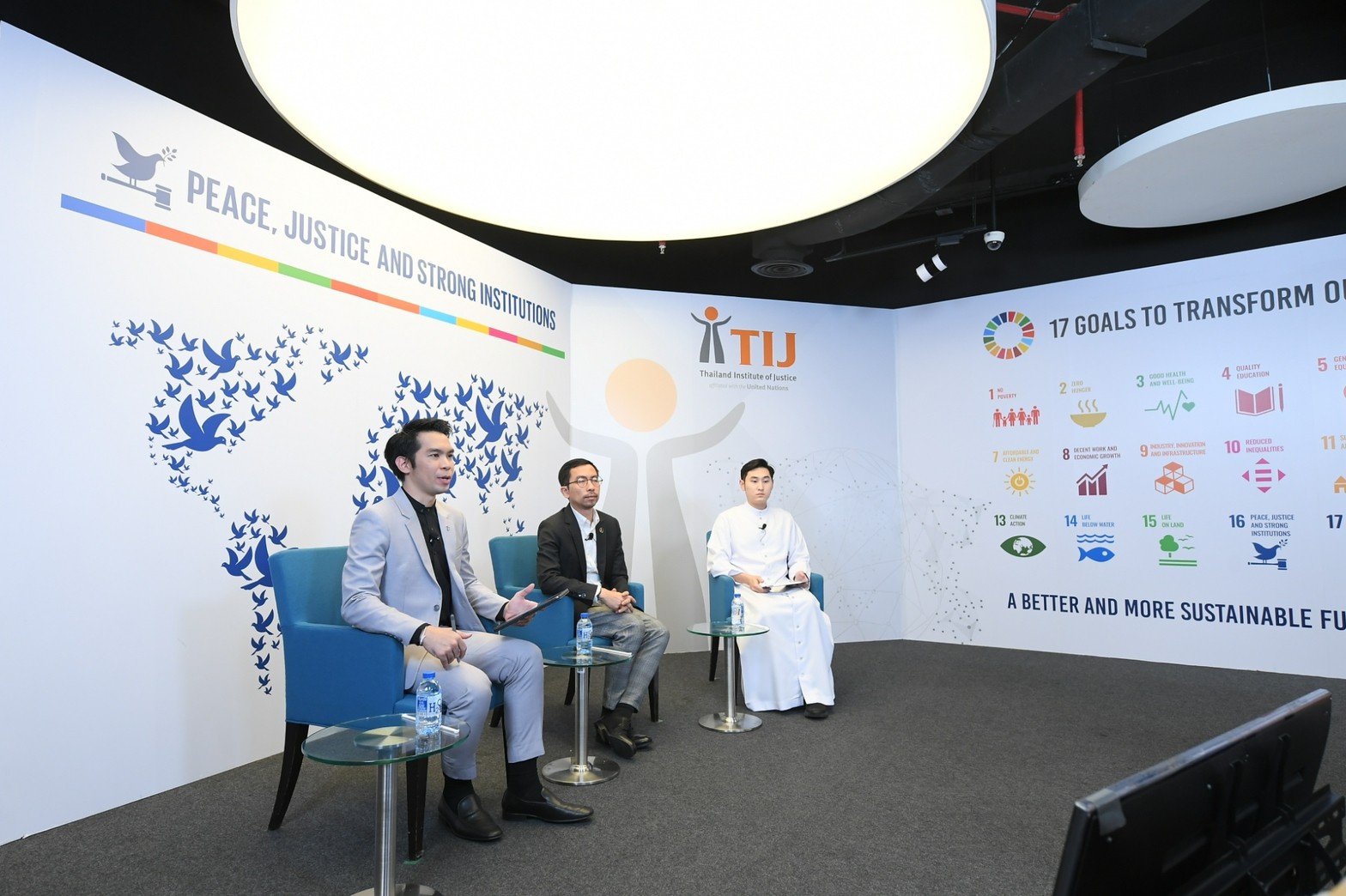
Later, Asst. Prof. Dr. Adisorn Juntrasook, Dean of Faculty of Learning Sciences and Education, Thammasat University together with Brother Katawut Sittichoksakul, Head of Academic Department, St Gabriel’s Foundation of Thailand, shared their opinions on the application of restorative justice in the educational sphere. In this respect, TIJ had made an agreement with the Faculty of Learning Sciences and Education, Thammasat University, and St Gabriel’s Foundation of Thailand to initiate a pilot project for the first time this year.
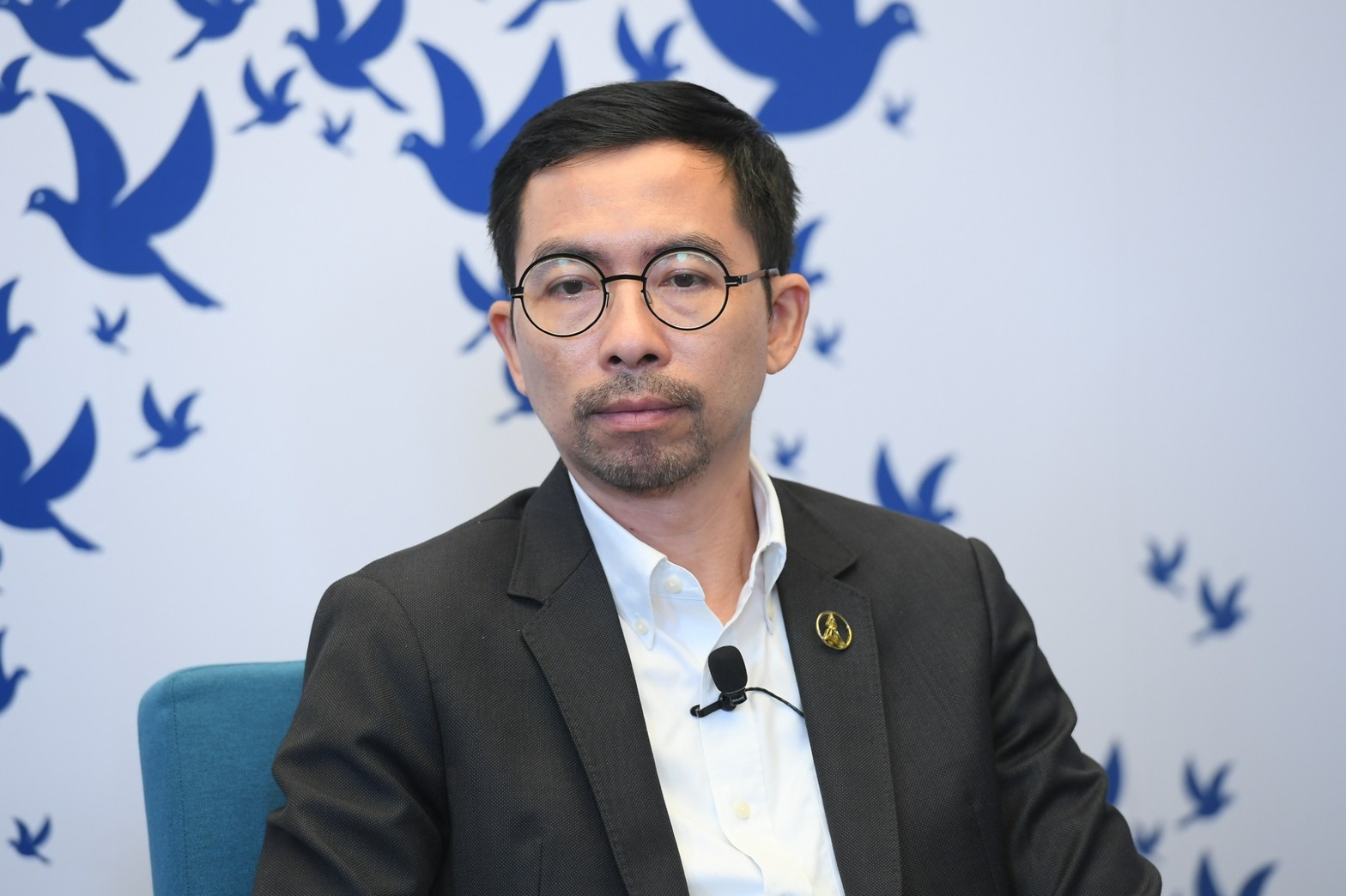
Asst. Prof. Dr. Adisorn shared that the concept of applying restorative justice in schools and educational institutions is based on the fundamental principle of restoring humanity to the justice process. Each party shall be acknowledged as an equal human being so that all parties involved can listen and comprehend their own and others' feelings. This will allow all parties to reach an understanding of the damage caused while truly listen and hear from the other in order to move forward.
“Conflict is normal. But conflict management is not normal in society because we often exercise power, command, and force offenders to pay for their actions even when they are not feeling any remorse. How can we make them realize the human element, think about the effect of their actions on others, and to want to remedy the other party and their own families? These concepts are being planted in schools and educational institutions to develop skill sets for future applications and also to expand opportunities to other children and youth.”, said Asst. Prof. Dr. Adisorn.
Faculty of Learning Sciences and Education, Thammasat University will be a vital part in strengthening in the application of restorative justice by university students and teachers. They can learn from direct experience to ensure a true understanding of the process. They will not be taught only to forgive, to compromise, or apologize to their peers. The education process will be time-consuming in order to build trust among the children so that they can feel that their words are heard and understood and there are others who are ready to move forward with them. It is hoped that the project with TIJ can be scaled up in other institutions as well.
“Our society is filled with conflicts, whether the conflicts of ideologies, beliefs, values, or differences. Our society needs this tool to manage such conflicts. Restorative justice can help people rebalance themselves, and listen to one another. If we can create graduates who understand how to form the learning process for people to have closure and be out of their suffering, it will be highly beneficial for Thai society. We can also expand this to cover other organizations aside from educational institutions.”

Brother Katawut Sittichoksakul added that restorative justice has been applied in St Gabriel’s Foundation of Thailand whereby children and youth can be the pillars of the morality of the society. The schools within the group teach Catholicism to the students and at the same time, the Christian principles of love, forgiveness, second chances, and respect for humanity are also taught with the focus on peaceful dispute resolution, even before the Foundation joined hands with TIJ. As seen from the change of the Discipline Office to the Guardian Office in the schools within the group. This is to signify that the office is there for the protection of the students and not to punish them. The office aims for a change of behavior, to bring about a sense of repentance, forgiveness, opportunities, and empathy through talk and discussions.
This year, a highly important strategy is being undertaken whereby the school is promoting respect for human dignity, rights and liberties, unity and peaceful harmony, and peaceful justice for all students. The initiative is being concretely undertaken. Teacher seminars were organized where teachers had signed to accept the policy of no violation against children. Children also need to acknowledge their rights as a student and a person in the school. The school also implements guidelines on the protection and remedy of students by providing one school-based psychologist who can give advice and guidance to the students. Also, there are teachers who specialized in child protection at the school, and parents are welcome to participate.
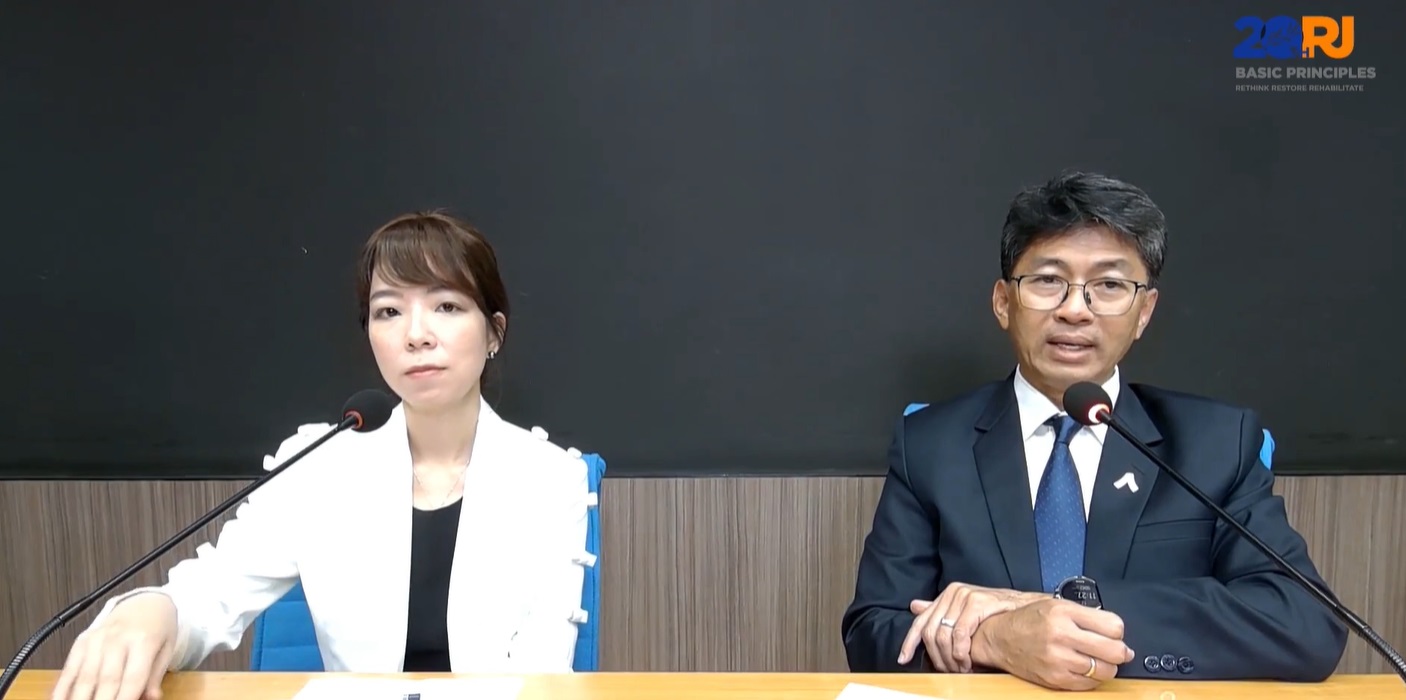
For the pilot project between TIJ and the Faculty of Learning Sciences and Education, Thammasat University, and St Gabriel’s Foundation of Thailand, a youth camp was organized during the period of 25th – 27th of July 2022. Representatives from student councils and teachers had come together to conduct workshops. The goal of the youth camp was to ensure that these students will be the communicator among their fellow students, teachers, and parents on the practices of restorative justice. The project also aims to create new ways to peacefully solve conflicts from the brainstorming of teachers or students joining the workshop which can be presented and developed to support inclusivity of all sectors.
The panelists also discussed the application of innovative information and technology to support the efficient application of restorative justice at the national level. TIJ has collaborated with the Faculty of Law, Chiang Mai University to develop a web-based e-learning and e-RJ process platform as a tool to monitor and evaluate the concrete application of restorative justice in society. The platform has been designed to ensure user-friendliness, with a convenient support system, such form-filling system to make appointments or track the progress of restorative justice applications.
On the progress of the website, Professor Paisit and Dr. Chernporn from the Faculty of Law, Chiang Mai University, had shared that the University already has available the database on actual dispute resolution in the regional level. The database can be applied to the bigger picture of restorative justice. The analysis of large database is required for the development of alternative knowledge database which can be applied in mainstream justice process to provide justice to the public on a case by case basis.
“This platform will educate the users on the different, non-traditional forms of justice process and how they can offer justice to all parties. More importantly, it can lead to the restoration of relationship between the parties or the communities. These forms of justice are available in practice for individuals or communities or for those who have experience with mediation. Hence, with this platform, the knowledge can be disseminated wider and justice can be delivered faster.”, said Professor Paisit.
In the next phase, the platform will be developed to accommodate Machine Learning and Artificial Intelligence (AI) for the purpose of discovering and analyzing information in the database, i.e., what are the success factors of restorative justice. This will further benefit the users of the system.
However, Dr. Chernporn also provided that now that we have the platform, another challenge is to have a user enticing mechanism that mainly requires building trust among the users.
Professor Paisit added that what TIJ is working on with the new generations can also attract new users to the database. This database is both the science and art of dispute resolution. With sufficient review of the cases, lessons can be learned from each case, leading to the planning of how to prevent conflict. Society can learn the direction such dispute is heading and how to prevent its escalation. Also, with sufficient number of cases, they can be referred to as evidence for reformations of law, and processes for delivery of justice, i.e., policy-making, and budget planning, which can be the option and survival of the justice process.
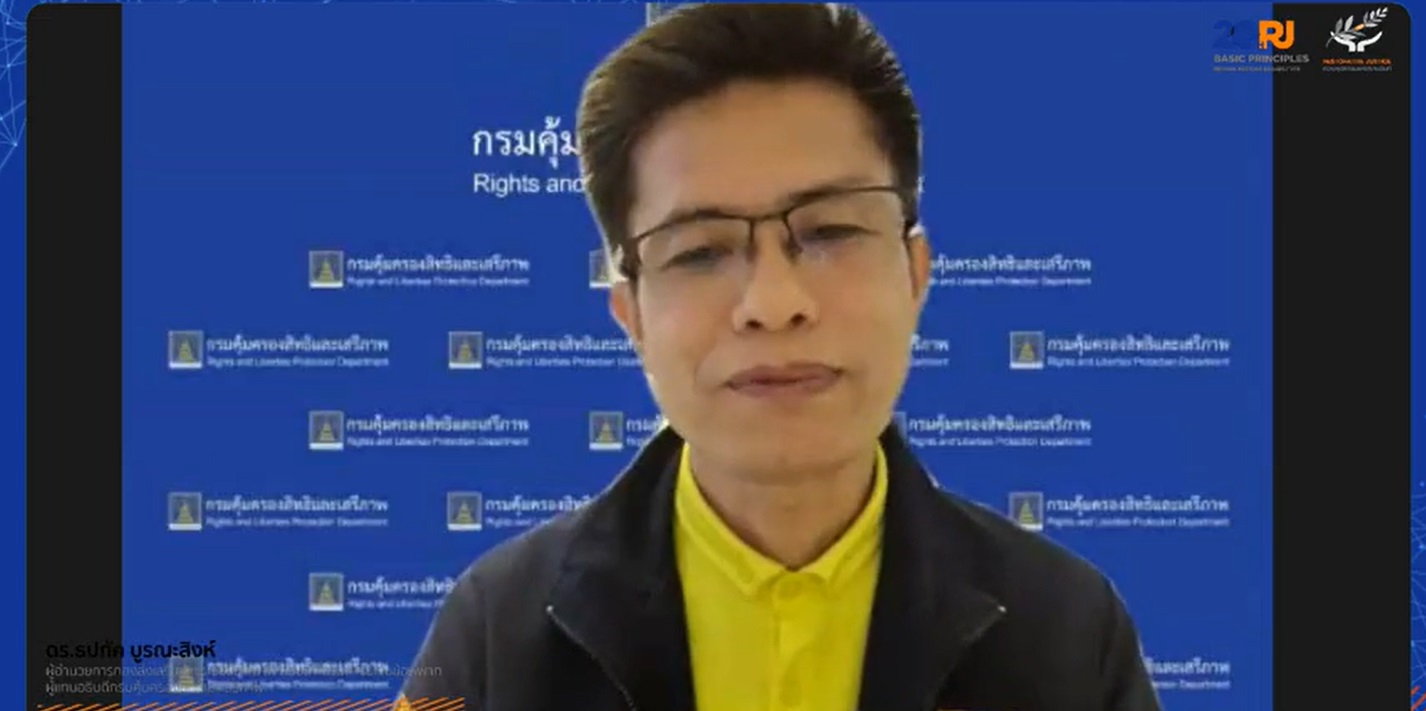
Dr. Thapapak from Rights and Liberties Protection Department, Ministry of Justice, shared his perspective on restorative justice from the perspective of a legal organization. He provided that the community justice approach has been long-standing in Thailand, and it was encouraged during 2004-2006. However, it was found that not every party will honor their end of the agreement as they had negotiated. This resulted in time wasted in court since the parties had to bring their cases to trial anyway. The Department later collaborated with Thammasat University in a research project which led to the proposal to draft Community Dispute Resolution for Compoundable Civil and Criminal Cases or Petty Offences Act.
“At present, the number of official lawsuits in Thailand is not less than 1.5 cases per year. Among these, 500,000 cases are criminal, and 1 million cases are civil. Restorative justice, if applied, can significantly divert small or minor cases. With this proposed legislation, the government agencies and civil sector, i.e., communities, can apply the legislation and establish a civil-sector mediation center. The upside of which is the duration of the dispute can be shortened. It will reinforce discussion with the assistance of a mediator. If an agreement can be reached, the case is finalized, but if not, the case will enter the formal justice process.”
Dr. Thapapak emphasized that we have been applying restorative justice, we have community-based mediation centers and justice centers all over the country. The important thing is the inquiry officials must inform the parties of these processes so that the case does not need to go to trial.”
Moreover, Dr. Thapapak also mentioned the integration of an online mediation system or e-mediation which the public can apply to use. Regardless of where the disputed parties are located, they can participate in the mediation process. It is the approach in this new normal era that facilitates negotiation and reduces the number of cases going to trial.
“Government agencies can use the e-mediation system to connect among their databases. TIJ is also developing a system as well and we are pleased to connect to create a larger database for restorative justice.”, said Dr. Thapapak.
Click here to view “The Missing Rock” short documentary.
Click here to view Online Technical Conference for the 20th Anniversary of the Adoption of Basic Principles on the Use of Restorative Justice Programmes in Criminal Matters.
Download the presentation on Harmonious Justice the Path of Restorative Justice Development in Thailand
Download Harmonious Justice: Thailand's Approach to Restorative Justice both in Thai and English



